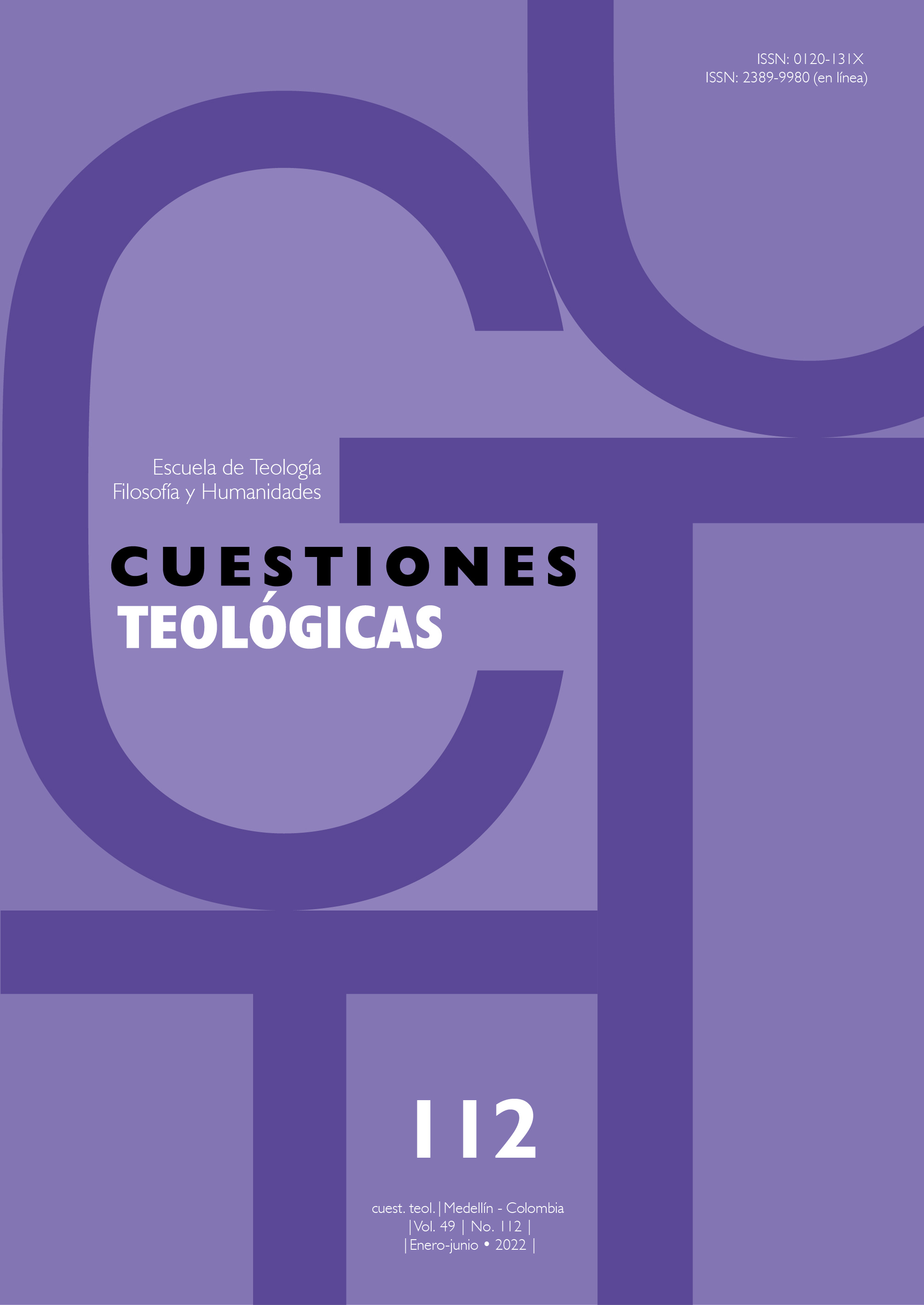Historical Research as a Socratic Dialogue with the Present: Interpreting Augustine’s Treatment of Porphyry in Ciu. 10
Main Article Content
Abstract
This research aims to identify Augustine’s deeper motivations in his refutation of the Neo-Platonist Porphyry in the City of God X. One of the facets of the inquiry is to clarify the role of Porphyry in Augustine’s political theory and in his perspective of the Roman Empire. This essay focuses on the method I employed which led to certain discoveries during these investigations. The method is described in terms of a “Socratic dialogue”, as an Auseinandersetzung between past and modern/recent history. The particular application of this method entails recognizing and objectifying certain attitudes in present society as well as those in contemporary scholarship, which can subliminally color one’s perspective in historical research. This variation of a “Socratic dialogue,” as applied to my research, confronts the conception of “empire” or “empire mentality”; striving for social change in terms of “revolution,” justifying (or rebelling against) oppressive measures or the oppressors. The rigid questioning of these issues takes place in a debate between the “Voice of the Present” (the attitudes identified above) and the “Voice of the Past” (the 4th and 5th century context in the Roman Empire in Augustine’s lifetime). The goal of this method is twofold: to highlight the sometimes thwarting effects of the historian’s personal context on their historical interpretation, and secondly, to open new avenues in interpretation, namely, in my case, enabling the placing of Augustine’s refutation of Porphyry into a more plausible, credible historical context.
References
Alexander, D.C. & Smither, E.L. (2015). “Bauer’s Forgotten Region: North African Christianity” in: Hartog, P. (ed.), Orthodoxy and Heresy in Early Christian Contexts, Reconsidering the Bauer Thesis, James Clark, 166-192. https://doi.org/10.2307/j.ctt1cgf14m.12
Amugen, M. (2015). “Machiavelli vs. St. Augustine, a Tale of Two Cities (A Philosophical Comparison between the City of Man and the City of God)”, American Journal of Biblical Theology, vol. 32.
Bavel, T.J. van (1989). Over Augustinus: liefde en vriendschap, Kok, 49–66.
Chambers, K. (2013). “Slavery and Domination as Political Ideas in Augustine’s City of God”, Heythrop Journal, 13-28. https://doi.org/10.1111/j.1468-2265.2010.00612.x
Clark, G. (2020). “The City of God: on Augustine’s vision of Empire”, Engelsberg Ideas LINK
Drake, H.A. (1996). "Lambs into Lions: Explaining Early Christian Intolerance", Past and Present 153 (1), 3–36. https://doi.org/10.1093/past/153.1.3
Dupont, A. and Lee, G.W. (2016). “Augustine’s Two Cities Revisited. Contemporary Approaches of De Ciuitate Dei”, Archive of the History of Philosophy and Social Thought 61, 79-105.
Dupont, A. (2018). “Augustine of Hippo as Politician. Political Practices at the Service of Christian Ideals” in: Dupont, A. (ed.), Doctor Pacis. Augustine’s Thinking on Peace, Univ. Augustiniana, 15-48.
Friedland, S. (1996). “How We Teach: A Survey of Teaching Techniques in American Law Schools”, Seattle University Law Review, 20, 1–44.
Geest, P. van (2014). “Quid dicam de vindicando vel non vindicando? (Ep. 95, 3). Augustine’s Legitimation of Coercion in the Light of His Roles of Mediator, Judge, Teacher and Mystagogue” in: Geljon, A.C. and Roukema, R. (eds.), Violence in Ancient Christianity; Victims and Perpetrators, Brill, 151-184. https://doi.org/10.1163/9789004274907_010
Gronke, H. (2004). “Das Sokratische Gespräch in Forschung und Lehre” in: pro argumentis, 1-30.
Hammer, D. (2021). “Books 4 and 5: Roman Religions and Just Power” in: Meconi, D. (ed.), The Cambridge Companion to Augustine’s City of God, Cambridge University, 81-101. https://doi.org/10.1017/9781108505307.006
Hanby, M. (2003). Augustine and Modernity, Routledge. https://doi.org/10.4324/9780203451854
Hartog, P. (2015). “A Comparison of the Critiques of Völker (1935) and This Collected Volume” in:
Hartog, P. (ed.), Orthodoxy and Heresy in Early Christian Contexts, Reconsidering the Bauer Thesis, James Clark, 235-248.
Johnson, A.P. (2013). Religion and Identity in Porphyry of Tyre: The Limits of Hellenism in Late Antiquity. Greek Culture in the Roman World, Cambridge University. https://doi.org/10.1017/CBO9780511998546
Lamb, M. (2020). “Augustine and Political Theory” in: Rodriguez, R.R. (ed.), T&T Clark Handbook of Political Theory, T&T Clark, 89-116. https://doi.org/10.5040/9780567670427.ch-007
MacIntyre, A. (2019). “Marxism and Religion”, Church Life Journal, January 25, 2019. LINK
McGrath, A. (2009). Heresy: A History of Defending the Truth, Harper One.
Mintz, A. (2006). “From Grade School to Law School: Socrates’ Legacy in Education” in: Ahbel-Rappe, S. and Kamtekar, R. (eds.), A Companion to Socrates, Blackwell, 476-493. https://doi.org/10.1002/9780470996218.ch29
Plumb, J.H. (2004, 1969). The Death of the Past, Palgrave. https://doi.org/10.1007/978-1-349-00418-8
Rist, J. (2007). “De spiritualiteit van Augustinus in het begin van de 21ste eeuw”, in: Bavel, T.J. van and Bruning, B. (eds.), Sint Augustinus, Mercatorfonds, 287–299. [English version: “Augustine's Spirituality in the Twenty-first Century” in: Bavel, T.J. van (ed.), Saint Augustine, Mercatorfonds, 2007].
Rist, J. (2014). Augustine Deformed; Love, Sin and Freedom in the Western Moral Tradition, Cambridge University. https://doi.org/10.1017/CBO9781139871990
Schott, J. (2008). Christianity, Empire, and the Making of Religion in Late Antiquity, University of Pennsylvania. https://doi.org/10.9783/9780812203462
Shelton, B. (2015). “Patristic Heresiology: The Difficulties of Reliability and Legitimacy, Bauer’s Forgotten Region: North African Christianity” in: Hartog, P. (ed.), Orthodoxy and Heresy in Early Christian Contexts, Reconsidering the Bauer Thesis, James Clark, 193-212. https://doi.org/10.2307/j.ctt1cgf14m.13
Vries, G. de (1995). De ontwikkeling van de wetenschap, Inleiding in de wetenschapsfilosofie, Wolters Noordhoff.
Young, F. (2000). “Christianity” in: Schofield, M. and Rowe, C. (eds.), Cambridge History of Greek and Roman Philosophy, Cambridge University, 635-660. https://doi.org/10.1017/CHOL9780521481366.033
Zwollo, L. (2021a). “Augustine’s Motivations for his Refutation of Porphyry and Theurgy in The City of God” in: Dupont A. and Partoens, G. (eds.), Augustine of Hippo’s De ciuitate Dei: Content, Transmission, and Interpretations, Studia Patristica CXVII, 177-190. https://doi.org/10.2307/j.ctv27vt566.16
Zwollo, L. (2021b). “Superbia and Augustine’s Opponents in The City of God: Roman Emperors and the Neo-Platonist, Porphyry” ETIAM, vol. XIV (15) Link
Zwollo, L. (2021c). “Docetism” in: Geest, P. van, Lietaert-Peerbolte, B.J., and Hunter, D. (eds.), Brill Encyclopedia of Early Christianity, Brill, online Link.






